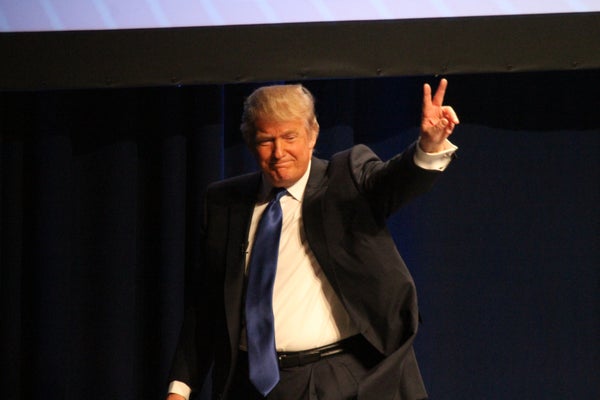By Susanna Twidale
COLOGNE (Reuters) - Donald Trump would be "highly unlikely" to be able to renegotiate the global accord on climate change if elected U.S. president, the U.N.'s climate chief said on Wednesday, as doing so would require the agreement of 195 countries.
Trump, the presumptive Republican presidential nominee, told Reuters earlier this month he was "not a big fan" of the climate accord and would seek to renegotiate elements of the deal.
On supporting science journalism
If you're enjoying this article, consider supporting our award-winning journalism by subscribing. By purchasing a subscription you are helping to ensure the future of impactful stories about the discoveries and ideas shaping our world today.
"As we all know, Donald Trump relishes making very dramatic statements on many issues, so it is not surprising, but it is highly unlikely that that would be possible," Christiana Figueres, executive secretary of the United Nations Framework Convention on Climate Change, told journalists at the Carbon Expo event in Cologne.
The accord, struck in Paris last December, saw countries agree to cut greenhouse gas emissions from 2020 with the aim of limiting the rise in the global average temperature to less than 2 degrees Celsius.
"An agreement that has been adopted by 195 countries would require 195 countries to agree to any new negotiation," she said.
She added the current U.S. administration was a strong supporter of the deal because it benefits the country.
Many of the accord's backers say it is in U.S. interests to limit greenhouse gas emissions, partly because cuts in the use of fossil fuels would also mean less air pollution, a big cause of disease.
Trump has said in the past he believes global warming is a concept that was invented by China to hurt the competitiveness of U.S. business.
The Paris Agreement will formally enter into force when 55 nations representing at least 55 percent of world greenhouse gas emissions have ratified it. China and the United States, representing 38 percent, say they will join this year.
Figueres said if this happens the agreement could come into force as early as 2017. It would then be even harder for the U.S. to pull out, as rules state any nation wanting to leave has to wait four years from the date of the agreement's entry into force - the length of a U.S. presidential term.
